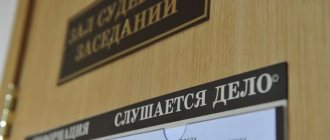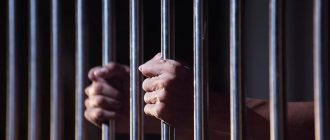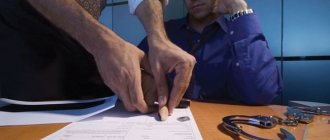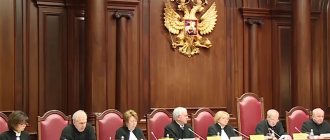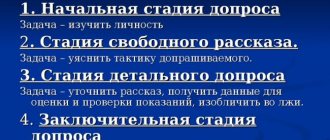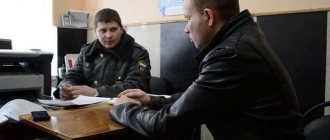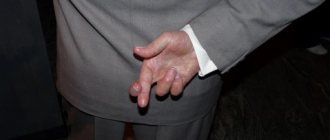New edition of Art. 113 Code of Criminal Procedure of the Russian Federation
1. In case of failure to appear when summoned without good reason, the suspect, the accused, as well as the victim, witness and the person in respect of whom the criminal case has been separated into separate proceedings in connection with the conclusion of a pre-trial cooperation agreement with him, may be subject to summons.
2. Arrest consists of forcibly bringing a person to an inquiry officer, investigator or to court.
3. If there are reasons that prevent them from appearing when summoned on time, the persons specified in part one of this article shall immediately notify the authority by which they were summoned.
4. The decision of the inquirer, investigator, judge or court ruling on the arrest before its execution is announced to the person who is subject to the arrest, which is certified by his signature on the resolution or ruling.
5. The drive cannot be carried out at night, except in urgent cases.
6. Minors under the age of fourteen, pregnant women, as well as patients who, for health reasons, cannot leave their place of stay, are not subject to transportation, which must be certified by a doctor.
7. The arrest is carried out by the bodies of inquiry on the basis of a decision of the inquirer, investigator, as well as by employees of the compulsory enforcement authorities of the Russian Federation - on the basis of a court decision.
What is a drive
In accordance with the current legislation, the bringing of a person is carried out by forcibly delivering (escorting) the person to the place of summons by the initiator of the bringing - an investigator, an inquiry officer or a bailiff.
It should be noted that the drive can be used not only in relation to participants in criminal proceedings (suspect, accused, victim, witness), but also in relation to a civil plaintiff, civil defendant, expert, specialist, translator.
The drive is carried out on the basis of:
- decisions (rulings) of the court (judge),
- resolution of the bailiff, approved by the senior bailiff or his deputy,
- resolutions of the investigator of the Federal Bailiff Service.
Questioning a lawyer as a witness
At various venues, the advocacy and legal communities are discussing the legality of interrogating lawyers on certain circumstances related to their professional activities. The most acute problem is the questioning of a defense lawyer in connection with participation in criminal proceedings. As a rule, it is in connection with participation in criminal proceedings as a defense lawyer that the lawyer receives the information that the initiator of the call for interrogation wants to know. Accordingly, lawyers carrying out their professional activities in this area more often than others turn to bar associations for clarification.
At the same time, lawyers rightly point out the absence at the moment of completely clear, specific practical recommendations regarding the actions of a lawyer in a given standard situation. If such recommendations were available, it would not only be easier for a lawyer to navigate this difficult issue, but also easier to explain to the investigator (court) his position regarding a summons for questioning under certain circumstances. The recommendations of the FPA Council (approved by the decision of the Council of the Federal Chamber of Lawyers dated November 30, 2009 (Minutes No. 3), with an addition dated September 28, 2021 (Minutes No. 7)) do not cover all problems that arise in practice, including the issue of the relationship between the right and obligation of a lawyer to testify in a particular standard situation. There are no other official clarifications. The disciplinary practice of bar associations is not uniform. In similar circumstances, different chambers of lawyers make diametrically opposed decisions: from termination of disciplinary proceedings to termination of the status of a lawyer.
I believe that there is a need to formulate and bring to the attention of lawyers a number of simple norms and rules that should be followed in a hypothetical situation. There should not be too many such rules; they should be short and understandable. The justification for the validity of a particular rule should be given in the comments. To start the discussion, I propose the following version of recommendations. Author's comment below.
Recommendations for a lawyer in the event of a summons for questioning on issues related to participation in criminal proceedings:
1. On issues not related to professional activities, a lawyer is subject to questioning as a witness in the usual manner.
2. A lawyer should not appear for questioning without receiving a corresponding summons. After receiving the summons, the lawyer has the right to contact the Bar Council for clarification on further actions. Before receiving clarification from the advice (if requested), the lawyer is not recommended to appear at the place of interrogation (see paragraph 3 of the commentary). The initiator of the interrogation should be notified of the request for advice from a lawyer.
3. As a general rule, on issues related to professional activities, a lawyer is not subject to questioning as a witness. Exceptions to this rule established by law, taking into account the legal positions of the Constitutional Court of the Russian Federation, are given in these recommendations.
4. At the stage of pre-trial proceedings, a lawyer may be summoned for questioning as a witness on issues related to professional activities only on the basis of a court decision (see paragraph 2 of the commentary).
5. A lawyer participating in criminal proceedings as a defense attorney is not subject to being called for questioning as a witness until the issue of his recusal is resolved (during the period of pre-trial preparation - taking into account the possibility of appealing within a reasonable time), the refusal of this lawyer is accepted, or the provision of legal assistance is terminated. other reasons.
6. A lawyer who has ceased to participate in criminal proceedings as a defense attorney may be questioned at the request of the defense, subject to his consent to testify.
7. A lawyer who has ceased to participate in criminal proceedings as a defense attorney may be summoned for questioning at the request of the prosecution (or at the initiative of the court) only on issues of compliance with the legal procedure for procedural actions with the participation of the client during the pre-trial proceedings if issues of admissibility are resolved evidence. In this case, the lawyer must independently decide on the need to testify, taking into account the opinion of the former client and his lawyer. In the absence of reliably expressed consent of the former principal and his lawyer to conduct an interrogation of the lawyer, the most reasonable thing to do is to seek clarification from the council. If it is impossible to contact the council, one should proceed from the presumption of prohibition of disclosing information about the circumstances of the provision of legal assistance.
8. A lawyer who is an eyewitness to the commission of illegal actions by his client during the period of defense that are not related to the current legal proceedings (in which he takes part as a defense lawyer) may be summoned for questioning as a witness in the event of a new one being initiated (not related to where he is the defense attorney) in criminal proceedings against the principal in connection with these events. In this case, the lawyer does not have the right to give evidence without the consent of the client and his defense attorney.
1. Cases where a defense lawyer is called to testify due to circumstances related to professional activities (the initiator, the essence of the alleged testimony)
Cases where a lawyer is called to testify in a criminal case against a client have a different nature.
For example, testimony by a lawyer in accordance with the exceptions established by Part 3 of Art. 56 of the Code of Criminal Procedure of the Russian Federation (Determination of the Constitutional Court of the Russian Federation of March 6, 2003 No. 108-O), i.e. at the request of a lawyer and in the interests of the client, does not cause controversy among lawyers due to the absence of a risk of harming the defense position or violating attorney-client privilege (paragraph 6 of the recommendations).
Also justified is the prevailing opinion in the legal community that it is prohibited to interrogate a lawyer who, at the time of being called for interrogation, is participating in a criminal case on charges of a client and has been summoned for interrogation in connection with its consideration (paragraph 5 of the recommendations). This is due to the inadmissibility of combining procedural functions.
The Decree of the Constitutional Court of the Russian Federation of May 29, 2007 No. 516-О-О states: “The defense attorney does not have the right to participate in criminal proceedings if he has previously participated in it as a witness. This rule cannot prevent the participation in a criminal case of a defense attorney chosen by the accused who has not previously been interrogated during the proceedings, since it excludes the possibility of interrogating the latter as a witness about the circumstances and facts that became known to him in the framework of his professional activities in providing legal assistance, regardless of the time and circumstances of his receipt of such information" (see also the Determination of the Constitutional Court of the Russian Federation of July 6, 2000 No. 128-O).
It is no secret that the scheme of interrogating a defense lawyer as a witness and then disqualifying him is used by unscrupulous officials to remove an unwanted defense lawyer from a criminal case.
In this regard, participation as a defense attorney should exclude the possibility of questioning a lawyer on the current case. Until the termination of his participation in the case, including until the court resolves (including in accordance with Article 125 of the Code of Criminal Procedure of the Russian Federation in the case of an appeal against the investigator’s decision during the pre-trial preparation period) the issue of challenging or accepting the refusal of a lawyer in the current process, he should not interrogated regardless of the substance of the subject of interrogation and the consent of the principal, since after interrogation he cannot remain a defender.
After the termination of the lawyer’s participation in criminal proceedings as a defense lawyer, including after resolving the issue of recusal or refusal of the defense lawyer, if it is necessary to interrogate the lawyer at the initiative of the prosecution and the court, the circumstances that served as the reason for calling the lawyer for questioning should be taken into account.
At the moment, there are two exceptional cases of calling a lawyer to testify against his client at the request of the prosecutor (decision of the investigator) or on the initiative of the court about circumstances arising from the professional activity of the lawyer. According to the decisions of the Constitutional Court of the Russian Federation, these cases are an exception to the general rule prohibiting questioning of a lawyer about the circumstances of the provision of legal assistance.
Unlike testifying at the request of the defense, the testimony of a lawyer expected by the initiator of a summons for questioning in this case, to put it mildly, does not always correspond to the interests of the principal.
In my opinion, the removal by the Constitutional Court of the Russian Federation (in the rulings of July 16, 2009 No. 970-O-O and of March 29, 2021 No. 689-O, and also taking into account the Determination of June 6, 2021 No. 1232-O ) witness immunity in terms of the opportunity to ask relevant questions to the lawyer does not in itself mean a reciprocal obligation of the lawyer to answer them. This does not exclude the choice of a lawyer, taking into account specific circumstances (for example, the need to protect against slander in the commission of a crime, a disciplinary offense) in favor of testifying. At the same time, the key guidelines for a lawyer in such a situation should be the opinion of the legal community (explanations of the council on a specific request of the lawyer) and the position of the client (including the former) and his defense attorney regarding the need to question the lawyer. Giving evidence against the principal when the latter denies certain circumstances and events - to a certain extent undermines the foundations of trust inherent in the “lawyer-client” relationship.
The first such exceptional case (clause 7 of the recommendations) is the calling of a lawyer to testify regarding violations of the criminal procedure law committed during the pre-trial preparation period (Decision of the Constitutional Court of July 16, 2009 No. 970-О-О).
From this decision it follows that the court (here – the court) has the right to ask questions to the lawyer regarding compliance with the guarantees provided for by law when conducting procedural actions with his participation. The need to obtain this kind of information arises, as a rule, when considering issues of admissibility of evidence not at the initiative of the defense.
In this sense, the testimony of the lawyer who agreed to give it meets the criteria for admissibility of evidence. Actually, the question of the admissibility of evidence was the subject of the applicants’ appeal to the Constitutional Court of the Russian Federation. The duty of the lawyer to answer them, which corresponds to the right of the court to ask questions, was not considered here. In my opinion, the lawyer in this case has the right not to testify, having made a corresponding statement about the impossibility of testifying due to professional witness immunity and general civil witness immunity provided for in Art. 51 of the Constitution of the Russian Federation (since, depending on the content, the testimony given by a lawyer can subsequently be used against him in disciplinary or other proceedings).
And yet, it should be recognized that recently the opinion of the legal community (as expressed in the disciplinary practice of a number of bar chambers) is such that testimony by a lawyer in such a situation is allowed (although not encouraged). In this case, the right of a lawyer, who was actually publicly accused by a former client of violating professional ethics, is recognized to take advantage of an exception to the general rule on the prohibition of disclosing professional secrets, taking into account the broad interpretation of paragraph 4 of Art. 6 of the Code of Professional Ethics for Lawyers. That is, in this case, the lawyer defends his position in a dispute with the client regarding the proper performance of professional duties. However, this opinion is not shared by all bar associations. Thus, a lawyer who agreed to testify in such a situation was deprived of the status of a lawyer by a decision of the St. Petersburg Bar Chamber (see Review of the disciplinary practice of the St. Petersburg Bar Chamber for 2021). The recommendation to contact the council if the former client does not consent to questioning a lawyer is caused by the lack of uniformity in the disciplinary practice of bar chambers in different regions.
There is a clear opinion that a lawyer who agrees to testify in such a situation must answer only questions regarding the legality of conducting procedural actions with the participation of a lawyer (presence during the procedural action, the validity of the lawyer’s signature, the time of the procedural action, issues of confirmation of authority, etc.) . Answering questions about the content of investigative actions or conversations with the principal is unacceptable in any case.
In this case, the testimony of the lawyer who agreed to be questioned concerns only the issue of admissibility of evidence and the legitimacy of the relevant procedures (for example, the procedure for bringing charges) and does not in itself incriminate the principal (former) of committing a particular act of which he is accused.
I think that here the lawyer must make his own decision (taking into account the opinion of the former client and his defense attorney) about testifying or using witness immunity. It is the lawyer who should set a priority in each specific case: protecting his good name or “do no harm” to the client grasping at straws (personally, the second position is closer to me). Moreover, in the absence of reliably expressed consent of the former principal and his defense attorney to interrogate the lawyer, the most reasonable thing to do is to seek clarification from the council. If this is not possible, one should proceed from the presumption of a ban on disclosure of information about the circumstances of the provision of legal assistance.
The second case (clause 8 of the recommendations) is calling a lawyer to give evidence that actually incriminates the client in committing a criminal act (Decision of the Constitutional Court of March 29, 2021 No. 689-O).
This legal position concerns the circumstances of a possible summons for questioning of a lawyer in connection with the unlawful acts of the principal, unrelated to the criminal case in which the lawyer is a defense attorney. Such interrogation also does not occur at the initiative of the defense.
Unlike calling a lawyer to testify on procedural issues, in this situation the lawyer is asked to give testimony, including about the event of the act, the person’s involvement in its commission and other circumstances that must be proven in a criminal case. Thus, the testimony of a lawyer expected by the initiator of the summons for questioning in this case directly incriminates the client (in another case) of committing a crime and can be used as the basis for a conviction as evidence on the merits of the charge.
I think that in this case, a lawyer can testify only with the consent of the client and his defense attorney, since testimony against the client, albeit in a “parallel” case, undermines the very foundations of trust. The legal community, in my opinion, should take an extremely tough position, strictly prohibiting a lawyer from giving evidence in the absence of the consent of the client (former client) or without a positive explanation from the council of the bar association at the corresponding request of the lawyer.
In this part, it is also necessary to focus on the clarifications of the FPA RF Commission “On the issue of a lawyer making public information about crimes or other offenses.” The decision of the FPA Council dated June 28, 2021 clarifies the situation when a lawyer, while carrying out his professional activities, unwittingly becomes a witness to an illegal act, which has not yet become known to a law enforcement agency, and without the initiative of the lawyer, it may not become known. The case considered in the Decree of the Constitutional Court of the Russian Federation dated March 29, 2021 No. 689-O concerns the interrogation of a lawyer at the initiative of the investigation on the circumstances of an already identified unlawful act (i.e., an investigation is underway in a criminal case against the client of the lawyer, who, as a defender of this person in another case, he was an eyewitness to the commission of a possibly unlawful act by this person). However, the chain of logical reasoning about undermining trust in a lawyer, given in the said explanation of the Council, also applies to a situation where a lawyer, without the consent of the client (former client), testifies against him.
The argument that the testimony of a lawyer in a particular situation is key (for example, he was the only eyewitness to the act committed by his client), and therefore the lawyer is supposedly obliged to answer questions in the interests of justice, in my opinion, are unacceptable.
After all, it is impossible to hold accountable for refusing to testify a person who has the information necessary for the investigation regarding himself or a close relative (Part 1 of Article 51 of the Constitution of the Russian Federation), even if this information is exclusive. The commission of a crime (i.e. an act that clearly goes beyond the scope of private and family life) by one close relative in the presence of another close relative and even in relation to him does not prevent the latter from exercising the right provided for in Art. 51 of the Constitution of the Russian Federation. At the same time, no one has the right to interfere with the free choice of such a person to testify against a close relative. The degree of trust in the relationship between a lawyer and his client in matters related to the provision of legal assistance, and society’s expectations in this regard from the institution of the legal profession are akin to the degree of trust and expectations from relationships between close people (naturally, in our case, only on issues arising from professional activities lawyer). The right of a lawyer not to testify against his client (former client) cannot be sacrificed just because there is not enough “quality” evidence against him. If you limitlessly elevate the interests of justice (and public safety) above other legally protected institutions, then sooner or later the question will arise about limiting the immunity of a clergyman for interrogation about the “secret of confession.”
2. Summoning a lawyer for questioning only by court decision
In my opinion, lawyers should not be recommended to appear for questioning without a court order.
Taking into account the different procedures for making a decision to call a lawyer for questioning as a witness (about circumstances related to professional activity) during the trial or at the pre-trial stage, they should be divided according to the degree of risk for the institution of attorney-client privilege. If, during a judicial review, such a decision is made openly, publicly, taking into account the opinions of the parties, and the interrogation of the lawyer itself takes place in a court hearing with the participation of the parties, then law enforcement officers call the lawyers for interrogation without preventive (preliminary) judicial control. In the context of such “office” decisions, a premature and unfounded conclusion is often made that certain circumstances, to clarify which a lawyer is called, do not relate to information protected by attorney-client privilege. The risk is increased by the closed nature of the interrogation procedure at the pre-trial stage.
Meanwhile, the investigator’s conclusion about the need to interrogate a lawyer is often not obvious, including to the lawyer himself who is subject to interrogation.
Currently, Federal Law No. 73-FZ of April 17, 2021 has made changes to the Code of Criminal Procedure of the Russian Federation (new paragraph 5.2, part 2, article 29; article 450.1 have been introduced) regarding the conduct of searches (as well as seizure and inspection) in lawyer’s offices formations, providing for a preliminary court decision, and the utmost specification of the subject of the search, and the presence of an observer (representative) from the bar association.
A similar (or similar) algorithm, in my opinion, should be applied in the case of calling a lawyer for questioning at the pre-trial stage.
Norms clauses 2 and 3 art. 8 of the Federal Law of May 31, 2002 No. 63-FZ “On advocacy and the legal profession in the Russian Federation” (hereinafter referred to as the Law on the Legal Profession) literally (“cannot be summoned and questioned as a witness”) indicate a prohibition not only of interrogation lawyer, but also “summoning” him for questioning, and carrying out investigative actions and operational measures against the lawyer involves issuing a court decision.
From the legal positions of the Constitutional Court of the Russian Federation (Resolution No. 33-P of December 17, 2015, determinations of the Constitutional Court of the Russian Federation of October 21, 2008 No. 673-O-O, dated November 8, 2005 No. 439-O) it follows: in matters of legal secrets (in this case, the witness immunity of a lawyer), the priority of legislation on advocacy and the legal profession over the Code of Criminal Procedure of the Russian Federation is obvious.
Interrogation is an investigative action. The purpose of a summons for questioning is to obtain information related to the subject of the investigation from the person who has it, i.e. by its nature, as in the case of a search (seizure, inspection), this is the same activity of detecting and seizing information necessary to establish certain circumstances relevant to the investigation. The difference is that in this situation, information (known to the witness) is not materialized in objects and documents, but becomes “tangible” only after proper recording of the oral story of the interrogated person.
If the information carrier is a person endowed with immunity by law, then it would be logical to use the same legal procedures to obtain the necessary information from him that are provided for obtaining the required material objects (objects and documents).
A systematic understanding of the legal provisions on lawyer immunity for interrogation involves calling a lawyer for interrogation only by allowing the court to resolve the request for such and issuing an appropriate reasoned decision. At the present time, in the absence of such a provision in the Code of Criminal Procedure of the Russian Federation, an unacceptable, in my opinion, practice has developed, when the decision of the investigator (inquirer) to call a lawyer for questioning is not only not subject to judicial control, but is not at all clothed in the form of a reasoned procedural document (resolution in accordance with Part 4 of Article 7 of the Code of Criminal Procedure of the Russian Federation), which significantly complicates an objective assessment of the true motives for the decision to call a lawyer for questioning.
Let me remind you that the Ruling of the Constitutional Court of the Russian Federation (dated July 16, 2009 No. 970-О-О) refers to the interrogation of a lawyer by the court, and not at the pre-trial stage, i.e. The decision on the possibility of questioning a lawyer in a specific situation is made by the court, taking into account the opinions of the parties to the proceeding.
Another Definition of the Constitutional Court of the Russian Federation (dated March 29, 2021 No. 689-O) contains the following statement: “the law does not imply that the investigator has the right, without sufficient factual grounds, to call the defense lawyer involved in the case for questioning as a witness,” as well as an indication that that resolving the issue of the validity of calling a lawyer for questioning in a particular case requires an investigation of the factual circumstances of the case.
The requirement to study certain factual circumstances of the case, as well as to establish the presence of sufficient factual grounds, allows us to conclude that it is necessary to issue a reasoned decision and an independent (read: judicial) assessment of the validity of the investigator’s decision to call a lawyer for questioning.
Leaving the possibility of resolving the issue of “sufficiency of factual grounds” for calling a lawyer (defense side) for questioning only at the discretion of the investigator (prosecution side) without a preliminary independent assessment by the court may upset the balance of rights and obligations of the parties in adversarial criminal proceedings and lead (in the worst case scenario) ) irreparable violation of the right to defense and unjustified disclosure of confidential information.
At the same time, the need to distinguish between information that is really necessary for the investigation and that is not protected by law, which a person with additional professional guarantees has the right to disclose, requires, at a minimum, preliminary familiarization with the set of issues to be clarified.
The conclusion suggests itself that the decision of the investigator (inquiry officer) to call a lawyer for questioning must be presented in the form of a reasoned procedural document (resolution in accordance with Part 4 of Article 7 of the Code of Criminal Procedure of the Russian Federation) and be the subject of judicial control.
Thus, preliminary judicial control of the investigator’s decision to call a lawyer for questioning, based on the spirit of the law, is mandatory. When considering the investigator's petition, the court should, with the participation of the lawyer, establish the nature of the information known to him on the controversial case, its relevance to the subject of proof (to exclude interrogation on circumstances clearly not related to the subject of proof) and the need to interrogate the lawyer if there is a possibility of establishing the circumstances known to him by others less controversial methods. In this case, the lawyer could submit to the court an explanation from the Bar Chamber, given to the lawyer at his request in accordance with subsection. 19 clause 3 art. 31 of the Law on Advocacy. In addition, a representative of the bar could be summoned to the court hearing to provide a competent opinion on the presence or absence of circumstances related to attorney-client privilege. As an option, you can also consider the presence of a representative of the bar association when questioning a lawyer as a witness about the circumstances related to his professional activities.
3. Actions of a lawyer when summoned for questioning
Upon receipt of a subpoena for questioning as a witness, an attorney should take all reasonable steps to reduce the risk of a possible violation of attorney-client privilege.
In accordance with sub. 19 clause 3 art. 31 Part 3 of the Law on the Bar the Council of the Administrative Board provides an explanation at the request of a lawyer who finds himself in a difficult ethical situation. According to paragraph 4 of Art. 4 of the CPEA, the AP Council cannot refuse such clarification. Norm clause 3 art. 18 CPEA guarantees that a lawyer will not be subject to disciplinary liability when complying with the instructions of the AP Council.
Using their right, lawyers are increasingly turning to the council for clarification.
Organization of execution by bailiffs
- 1. The person responsible for office work registers the resolution (ruling) on the arrest the next day after its receipt by the structural unit of the FSSP. The registration log is provided as an appendix to the Order of the Ministry of Justice.
- 2. Then the decision on the arrest is transferred for execution to the senior bailiff or his deputy, who is responsible for organizing the maintenance of the established procedure for the activities of the courts (OUPDS).
- 3. The senior bailiff or his deputy checks the arrest order to ensure that it contains the following data:
- Full name of the person to be brought;
- date and place of his birth;
- intended location;
- date, time and place where the person to be brought must be delivered.
- 4. If the resolution does not contain the necessary data, the senior bailiff or his deputy informs the initiator of the summons about this.
- 5. The senior bailiff or him entrusts the execution of the decision to bring the bailiff under the OUPDS.
- 6. On the day of the arrest, the senior bailiff or his deputy determines and checks:
- gear, equipment, special means;
- uniform, the presence of badges and service certificates of bailiffs according to the OUPDS;
- resolves the issue of providing bailiffs for OUPDS with vehicles and, if necessary, military hand-held small arms and ammunition for them;
- conducts instructions taking into account the specific features of each drive.
Arbitrage practice
According to the Resolution of the Court in the Altai Territory, an eyewitness to the incident, who failed to appear twice when called by the investigator and interfered with the performance of official powers of the bailiff, was sentenced to a fine of 1,000 rubles.
This act was considered an administrative offense. Offender:
- obstructed the implementation of the duties of a bailiff;
- refused to appear when requested without providing valid reasons.
The Omsk Regional Court terminated proceedings in the case against a witness who failed to appear when summoned due to drinking alcoholic beverages. For this he was charged with an administrative offense, but the court declared it invalid and acquitted the citizen. If the trial court makes a decision on imputation of an offense, there is no guarantee that this decision will be subject to change by the higher court.
The court's decision to recognize as an administrative offense refusal or failure to appear when summoned to an investigator or to court as a participant or eyewitness to an incident depends on the actions of this person. From practice it is clear that anyone who resists and interferes with the performance of official duties of police officers or bailiffs pays a fine.
